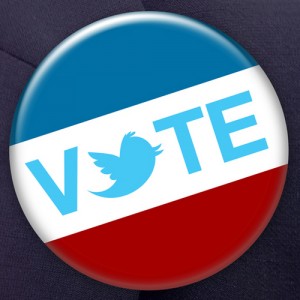It is science Friday (Wednesday edition), and I am off on an electronic sabbatical after a very difficult week. Therefore, I am admitting right now that I am lazy and this may be the laziest post ever written for Science Friday, but that is still no excuse NOT to bring you a study in the field of politics.
I came across this post on twitter, and I thought it was PERFECT for Science Friday.
The working paper is entitled More Tweets, More Votes: Social Media as a Quantitative Indicator of Political Behavior.
Here is the abstract from the authors:
Is social media a valid indicator of political behavior? We answer this question using a random sample of 537,231,508 tweets from August 1 to November 1, 2010 and data from 406 competitive U.S. congressional elections provided by the Federal Election Commission. Our results show that the percentage of Republican-candidate name mentions correlates with the Republican vote margin in the subsequent election. This finding persists even when controlling for incumbency, district partisanship, media coverage of the race, time, and demographic variables such as the district’s racial and gender composition. With over 500 million active users in 2012, Twitter now represents a new frontier for the study of human behavior. This research provides a framework for incorporating this emerging medium into the computational social science toolkit.
DiGrazia, Joseph, McKelvey, Karissa, Bollen, Johan and Rojas, Fabio, More Tweets, More Votes: Social Media as a Quantitative Indicator of Political Behavior (February 21, 2013). Available at SSRN: http://ssrn.com/abstract=2235423 or http://dx.doi.org/10.2139/ssrn.2235423
[Just because I am lazy, does not mean I won’t cite the paper correctly.]
There is a robust conversation going on with one of the authors here.
Conclusion
The most interesting thing from the working paper to me is the following:
First, the data do not include any information about the meaning or context of a name mention (e.g., “I love Nancy Pelosi” vs. “Nancy Pelosi should be impeached”). The relative share of attention compared to the opponent is all that is needed.
Meaning, if you are running for office and people aren’t talking about your positioning in relation to the other candidate(s), you have a problem.

